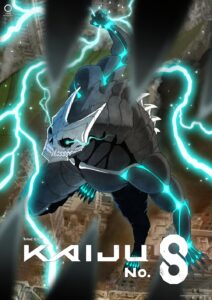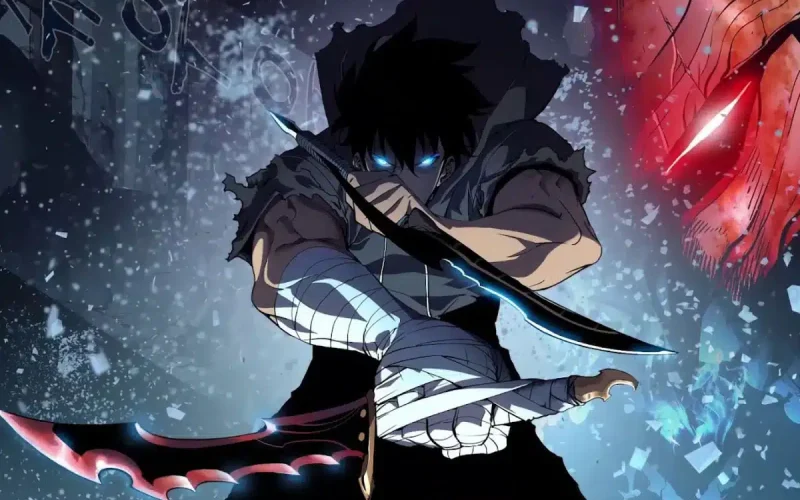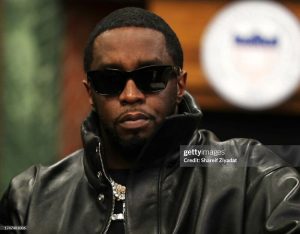With Kaiju No.8’s second season due to drop on 19th July 2025 on Crunchyroll, it will be interesting to see how the series fairs in comparison to Solo Leveling’s season 2 release in January 2025. The continuation of Sung Jinwoo’s story was very well received, but will Hibino Kafka’s story experience the same rise in popularity?
Both the protagonists of Solo Leveling and Kaiju No.8 experience a massive power boost within the first 2 episodes of their respective series, which essentially places their power above the rest of the characters. This sort of move can carry the risk of making the hero of the story seem overbearing or far too perfect. Both Solo Leveling and Kaiju No.8 avoid that problem and as a result of their expert handling of the OP protagonist, the audience is introduced to a brand new and exciting power fantasy experience. So, what can we learn from the way these awesome anime use their heroes, and what will we see from the industry going forward?
A Human Experience

When you look back at other power fantasies like Sword Art Online, or even the iconic Dragon Ball, it’s easy to get drawn in to Kirito and Goku’s stories as they outshine their peers in nearly every way, to an obnoxious degree in Kirito’s case, and to humourous consequences usually, in Goku’s. The stories utilise their OP protagonists in perfectly acceptable ways, but the heroes aren’t exactly relatable. In fact, in Goku’s case, it is revealed that the reason he is so powerful is because of alien ancestry, so the guy isn’t even human.
Flaws Keep Kafka Humble
Kaiju No.8 leans fully into the idea of the human experience, introducing a protagonist who has previously failed exams to get into the Defense Force to fight kaiju alongside his best friend. On the verge of giving up, Hibino Kafka decides to apply one more time after experiencing a kaiju attack with a new friend and then, through forced circumstances, acquires the power of a kaiju himself.
Endearingly, Kafka chooses not to use his new kaiju abilities to help himself through the process of taking the exam one more time, despite this being his last chance. The temptation is there, particularly when he finds that he is unable to release any of his combat prowess using the special suits they’re given, and yet Kafka chooses to embrace his humanity instead of mindlessly seeking power. It’s a relatable choice that speaks highly of Kafka’s character, and even when he does choose to use the power, it’s usually in the service of his companions, which makes the man into a true hero and inspires loyalty within the Defense Force.
Sung Jinwoo’s Subtle Struggle
Solo Leveling deals with similar themes in the character of Sung Jinwoo, but it comes at them from a completely different angle. While Kafka actively makes the choice not to use his powers to one-up his fellow humans, Jinwoo swings along the moral spectrum in regards to that which is a fascinating response to being granted the power to evolve in a world where magic is, essentially, static.
Though he works hard to level up so he can look after his sister and mother, a noble ambition, he also ends up using his new abilities to murder a group of hunters in Episode 6 of the first season which drags his morality into question and keeps that an actively interesting question throughout the rest of the series.
Where Kaiju No.8’s Kafka is right in the middle of his social circles, showing his humanity whilst drinking and laughing with colleagues, always shown as someone fully embracing human positivity, Jinwoo’s attitude is aloof. He is separated from his colleagues by the presentation of his own goals and in the way he keeps his abilities secret until the end of season 2, where his next big moral decision comes into play.
Faced with the invading ants, Jinwoo decides not to participate in the raid on Jeju Island because he doesn’t want media attention and he doesn’t want to concern his mother and sister. However, seeing his comrades falling has Jinwoo changing his mind. He embraces the responsibility that his new powers grant him and shows up to save the day in the nick of time. The growth of his morality over the course of his evolution is subtle, but it continues to pack a big punch in a way that retains audience attention and keeps Sung Jinwoo endearing.
The Control Conundrum
Even though it’s the choices that make our protagonists human, sometimes it’s taking those choices away that creates a sense of conflict within a narrative that keeps the audience engaged. Both Kaiju No.8’s Kafka and Solo Leveling’s Sung Jinwoo exhibit issues that are designed to enhance that relatability and gel with the themes of their respective stories.
A Kaiju Mentality
For Hibino Kafka in Kaiju No.8, the problem is that his power has been granted to him by a parasitic entity that lives inside him. For almost the entirety of season 1, Kafka is able to use the kaiju’s power as he sees fit but when he’s captured and taken in to be assessed for being a danger to humanity, Kafka briefly loses control of the entity inside him and the kaiju powers that he’s come to rely on.
As a result of this, Kafka nearly destroys his friend’s father and is only able to bring back his control through a defiant affirmation of his identity at the end of the conflict and a showcase of a willingness to hurt himself before others.
This whole issue with control sets up a nice exploration for season 2 of Kaiju No.8 as Kafka tries to navigate the tricky landscape of the Defense Force and reaffirm to his comrades that he is a companion, not an enemy. We’re expecting a hard look into Kafka’s personal philosophy as season 1 built up how determined and altruistic he really is, classic qualities of a hero, so season 2 will seek to shake those foundations in a way that we are all totally here for.
The Shadow of The System
For Jinwoo, the problem comes with the fact that his evolution, and therefore his abilities, don’t actually come directly from himself. Yes, its his own effort that allows him to level up, but the sinister truth is that his abilities have been granted and continue to be granted by a System that is forcing Jinwoo to grow, essentially, for rewards.
The amount of control that Jinwoo has is painted as debatable right from the get-go. In the hospital, he chooses to ignore the request for basic fitness training and is subsequently trapped in a dimension where he is chased by a high-level monster for a long time before being returned to the real world. In Episode 6 of season 1, it’s the System that demands he kill the hunters, and it is the System that forces him to complete certain quests so that he can obtain the ingredients needed for the Elixir of Life.
While Jinwoo has made brief enquiries about the System, he is currently reluctant to shake the boat, but maybe that will change in Season 3, now that he has obtained the title of Shadow Monarch. Either way, this issue of control keeps the viewer interested in the high-stakes attachment to these abilities. They’re not just given for free, and the notion of progression through struggle isn’t ignored at all, it’s simply redirected through the lens of keeping humanity and looking closer at what, exactly, the lack of control does to the protagonist.
Is Solo Leveling Complete?
While the anime still has a way to go, the manhwa for Solo Leveling has been completed since December 2021, though it’s only been released in fourteen purchasable volumes since June 2025. While the manhwa will give away the rest of Sung Jinwoo’s story, there are spin-off stories currently in production, including Solo Leveling: Ragnarok, that follows the story of Sung Jinwoo’s son, Sung Suho.
A Korean live-action production has also been rumoured to be in production, alongside frequent updates for the Solo Leveling game, Arise so there is plenty of content to fill your boots with as we wait for the release of the next season of the anime.








